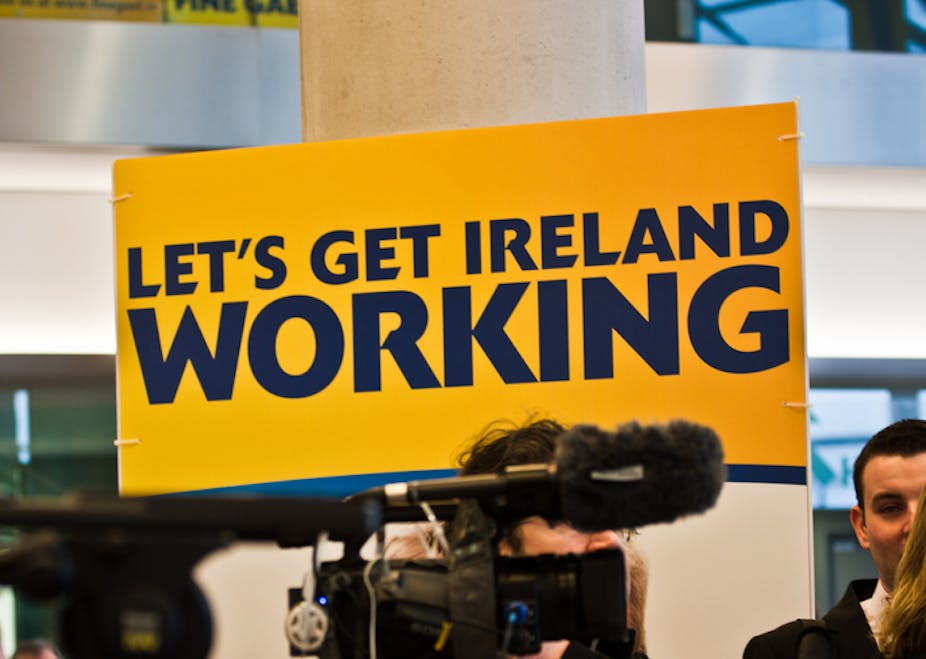The Republic of Ireland’s calamitous recent years of financial crisis and government dysfunction look to be coming to an end, with an economic recovery gathering pace and a new administration that seems serious about fixing the state.
Following the years of post-crash paralysis, a two–party coalition government of centre right (Fine Gael) and centre left (Labour) swept to power in 2011. They shared the largest parliamentary majority ever held by an Irish government, after a campaign where the need for political and administrative reform was a prominent doorstep issue.
Their ensuing Programme for Government has set out an ambitious agenda of “whole of government” reform, with few areas of public life left unaffected. The responsibility for the programme’s implementation was largely given to a new Department of Public Expenditure and Reform, which broke the finance minister-and-taoiseach duopoly that has traditionally formed the heart of Irish government.
Nearly three years on, there have been some notable reform successes, which are earning international credit and attention. Not least among these is Ireland’s exit from an IMF-EU-ECB sponsored loan programme, and the subsequent fall in Irish bond yields. Other achievements include a 10% reduction in public service numbers (without compulsory redundancies or mass strikes), extended working hours, and greater mobility of public servants across organisations.
These reforms come at a time of high demands on the public sector, with rising demand for unemployment assistance and the public health service. A major ingredient in the reform process has been two agreements between the government and public service unions, the most recent of which strengthened performance management arrangements and restructured of employment grades in the public sector, as well as another round of pay cuts.
At a pre-Christmas press conference marking the exit from the loan programme, minister for public expenditure and reform Brendan Howlin noted that important developments in public service reform were taking place “under the radar”.
Ireland is not known for radical or pioneering administrative reform, and there are long overdue overhauls of work practices underway. There is considerable political support for new programmes involving shared services, procurement reform and state agency rationalisation – things that scarcely ignite the public interest, but which are vital to achieving a great leap in Irish modernisation.
Onward and upward
In order to shore up internal support for its revised reform plan, the government has recently organised a series of town hall meetings between civil servants – again, a first for Irish bureaucracy. With the publication of a new consultation report, Strengthening Civil Service Accountability and Performance, the spotlight has now shifted to an issue that has long been a Gordian Knot for the Irish state: accountability for failures in public life.
In international terms, Ireland has long stood out for the antiquated way in which its ministers and senior officials interact and share responsibility. The “bargain” between political and administrative leaders has changed significantly in other jurisdictions with a Whitehall model of government, such as both Australia and New Zealand. Ministerial-civil service relationships in Ireland may not be at the low ebb currently witnessed in Whitehall, but when considered alongside other comparable states, the Irish system lags in its accountability.
Surprisingly, while the government continues to advance its reform plans, public support for high-profile political reform has wavered. The electorate has rejected two proposals put to it in referenda on parliamentary reform -– the first to strengthen parliamentary committee powers in order to facilitate an inquiry into the 2008 banking crisis, and the second to abolish Seanad Éireann, parliament’s relatively powerless second chamber. But as part of a pledge to amend the constitution by means of more direct democracy, the government set up a Constitutional Convention comprising citizens and politicians (and with an academic advisory board). The convention has made a number of interesting recommendations following more than a year of meetings.
The government is expected to run its maximum five-year term of office, meaning these suggestions have a strong chance of being implemented. Some more pushing is still needed to tie down the gains to date, address stubbornly high unemployment, and balance the books. In terms of whole-of-government reform, however, it does seem that the Irish crisis is not being wasted.

